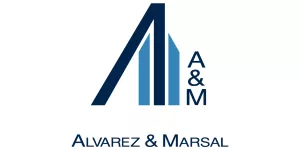On 9 December 2022, the Dutch Ministry of Finance announced several changes to the tax classification rules for Dutch funds for joint account (fondsen voor gemene rekening) to qualify as transparent or opaque for Dutch direct tax purposes. These announced changes can also be relevant for comparable foreign entities, such as FCPs and trusts.
Current tax entity classification rules
Under Dutch direct tax law, a fund for joint account (FGR) can be tax transparent or opaque.
The Dutch tax entity classification rules that apply to Dutch FGRs also apply to foreign entities that are sufficiently comparable. Examples of such entities include the Luxembourg FCP and property unit trusts in Ireland, the Cayman Islands and Jersey. The qualification of such foreign entities can be relevant in light of, for example, hybrid mismatch rules and eligibility for withholding tax benefits.
A Dutch FGR is a contractual entity and does not have legal personality. An FGR is in principle considered transparent from a Dutch direct tax perspective (i.e., for Dutch corporate income tax, withholding tax and personal income tax purposes). This means that taxation does not occur at the level of the FGR, but at the level of the investors as the income, assets and liabilities of the FGR are attributed directly to the investors proportionate to their units.
There is an exception to the general rule that an FGR is considered tax transparent. This exception exists as the Dutch government decided long ago that investment funds in the form of an FGR and Dutch public limited company (NV) should be taxed the same. In this respect, an FGR must qualify as economically similar to an NV, which is the case when the units in the FGR are freely transferable. If the units are freely transferable, the FGR is considered tax opaque and becomes subject to Dutch corporate income tax and withholding taxes.
To ensure that an FGR qualifies as tax transparent (i.e., that its units are not considered freely transferable), the provisions of the FGR agreement should either include the so-called unanimous consent alternative or the redemption alternative. Under the unanimous consent alternative, the transfer of units in the FGR may only take place after prior written consent of all other unitholders. Under the redemption alternative, units in the FGR may only be redeemed by the FGR itself. In addition to these alternatives, an FGR is also considered tax transparent when the units can only be transferred to certain qualifying family members.
Announced changes
The details of the changes announced by the Dutch Ministry of Finance are very limited and include the following:
- The unanimous consent requirement will no longer be relevant to determine whether an FGR should be considered transparent or opaque for Dutch direct tax purposes.
- The Dutch Ministry of Finance is investigating whether the opaque classification of an FGR can be based on the definitions of investment institutions (beleggingsinstellingen) included in Dutch financial regulatory law.
- FGRs that apply the so-called redemption alternative (inkoopvariant) should remain tax transparent going forward.
- A legislative proposal will be published and consulted in the first quarter of 2023. We expect that this legislative proposal will subsequently be submitted for Parliamentary approval on Dutch Budget Day 2023 (i.e., 19 September 2023).
A&M Says
Dutch FGRs are often used as fund vehicles for investments in real estate, debt and securities. As the unanimous consent alternative is commercially restrictive, most FGRs make use of the redemption alternative. The redemption alternative does not require prior consent from all unitholders and allows for secondary transactions (subject to certain limitations). As the redemption alternative will remain in existence for FGRs, we do not expect a major impact of the announced changes on the Dutch funds industry. Naturally, the legislative proposal will need to be considered carefully.
In an international context, the specific nature of the Dutch tax entity classification rules for FGRs and similar foreign entities often leads to hybrid qualifications (i.e., tax opaque from a Dutch tax perspective, but tax transparent for other jurisdictions). Based on the announced changes, it seems unlikely that the future tax classification rules will solve this issue in an investment funds context.
In the second quarter of 2023, a separate legislative proposal is expected to be published to, amongst others, abolish the so-called unanimous consent requirement for Dutch and foreign limited partnerships (LPs) to qualify as tax transparent. As a result, all LPs will in principle qualify as transparent for Dutch direct tax purposes going forward. The background of this proposal is to eliminate hybrid mismatches by bringing the Dutch classification rules in line with international standards.
The content of this article is intended to provide a general guide to the subject matter. Specialist advice should be sought about your specific circumstances.



